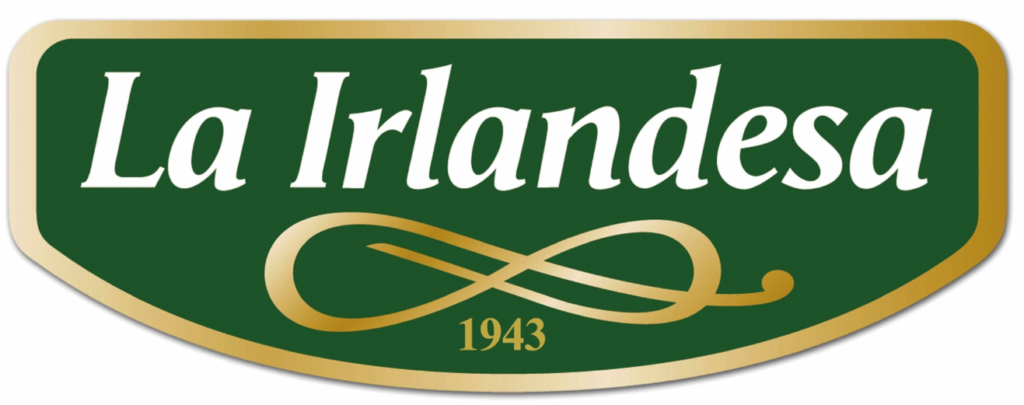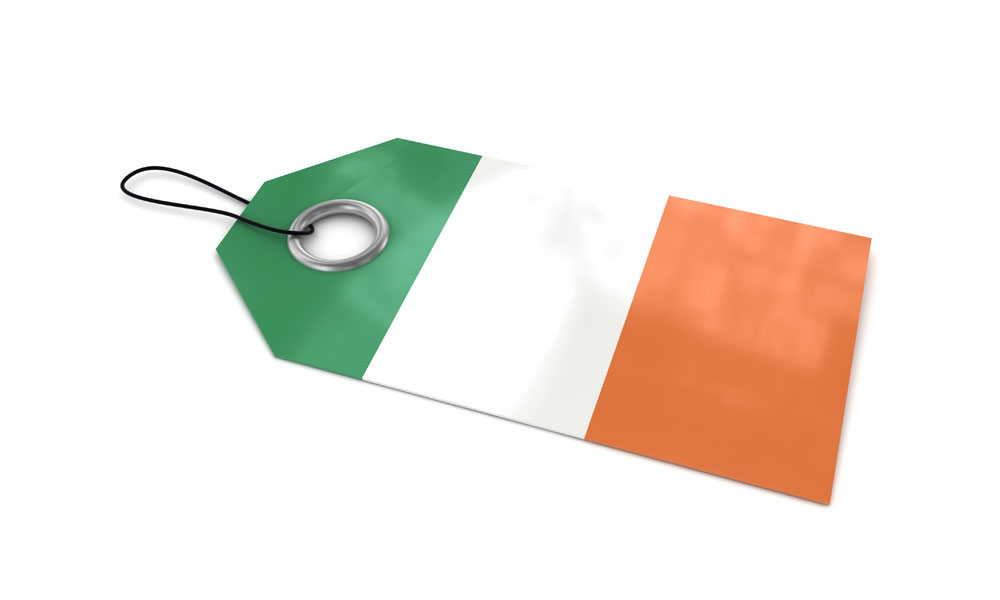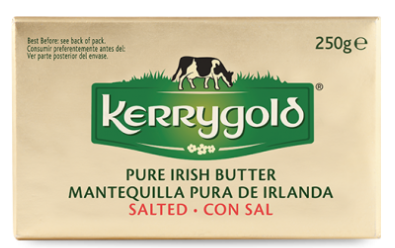The EUIPO has confirmed the nullity of the mark `La Irlandesa´. The analysis of this case provides criteria and guidelines for determining not only the misleading nature of a sign, but also when its application should be found to have been made in bad faith.
The Grand Board of Appeal of the European Union Intellectual Property Office (EUIPO) has recently ruled on the appeal regarding the declaration of invalidity of the trademark `La Irlandesa´, owned by Hijos de Moisés Rodríguez González, S.A., confirming the nullity of the trademark, both on the grounds of its deceptive nature and because it was applied in bad faith. A new decision in the plot for the use of the sign `La Irlandesa´ by said company.
On August 6, 2013, Hijos de Moisés applied for registration of the European Union trademark No. 12043436 for the sign:
That trademark was granted on 3 January 2014 for, inter alia, butter. On 7 January 2015, the Minister for Employment, Enterprise and Innovation, a member of the Irish Government, and the company Ornua Co-operative Ltd., which markets Kerrygold products, filed a request for a declaration of invalidity against that trademark alleging that:
- The trademark `La Irlandesa´ could mislead the public as to the geographical origin of the goods (currently Article 7.1 g) of the European Union TradeMark Regulation): to this end, in addition to justifying the reasons why the mark was perceived by the public as an indication of origin, i.e. Ireland, they provided evidence showing that, on the date of filing of the application, Hijos de Moises was marketing goods whose origin was not Ireland – but rather the Netherlands or Germany-.
- That the trademark was filed in bad faith (Article 59.1(b) of the European Union TradeMark Regulation), considering that: (i) the parties had a previous relationship in which the Hijos de Moisés marketed, exclusively, Kerrygold butter in Spain from 1967 to 2001; (ii) there was a history of litigation between the parties in relation to the sign `La Irlandesa´, and final judgments had been rendered; (iii) the parties had not limited the description of the products to those originating from Ireland; and (iv) the mark has a strong resemblance to the well-known `Kerrygold´ mark.
The EUIPO Cancellation Division dismissed the application for a declaration of invalidity. An appeal was lodged on 12 August 2016 before the Board of Appeal, which stated, on 2 March 2020, that:
- European Union trademarks have a presumption of validity, so that the applicant for a declaration of invalidity has the burden of proving, in this case, both the deceptive nature of the sign, and the application made in bad faith.
- The proof of the misleading nature of the sign, at the time of application, must presuppose the existence of actual deceit or a sufficiently serious risk that the consumer will be deceived, being irrelevant that the mark might be also perceived in a way that is not misleading. In other words, the cause of invalidity – and of absolute ground for refusal- will apply even when a non-deceptive use of the mark is possible.
- In the present case, the trademark ‘La Irlandesa’, with the green background, will be perceived by the relevant public as relating to Ireland, leading consumers to believe that the goods come from or has their origin in that territory.
- The evidence provided showed that the sign was used for goods originating in other countries, thus, the Board of Appeal concluded that the trademark was deceptive for the relevant public.
Likewise, it also concluded that the applicant was acting in bad faith when it filed the application for the trademark because:
- In assessing bad faith, the intention of the applicant and the objective circumstances of the case must be assessed in order to determine whether there is a dishonest intention or unfair conduct, which departs from accepted principles of ethical behavior or honest commercial and business practices. Thus, it will be considered `unfair´ and, therefore, dishonest, if the mark contains false information or it is deceptive with respect to the characteristics of the product or its geographical or commercial origin.
- As anticipated, Hijos de Moisés was the exclusive distributor of Kerrygold dairy products in Spain from 1967 to 2001. Because of that relationship, in 1967, Hijos de Moisés registered the trademark `La Irlandesa´, for the purpose of promoting Irish products in Spain. After the termination of their relationship, they applied for the mark which invalidity is being assess, when they no longer sold Irish products. It can therefore be inferred that they intentionally filed the application for registration with the aim of creating a partnership with Ireland and continuing to benefit from the business previously conducted with Kerrygold, taking unfair advantage of the good image of Irish goods, concluding the Grand Board of Appeal that the trademark was applied in bad faith.
This is a new case that gives us additional criteria and guidelines for determining not only the deceptive nature of a sign, but also when it must be found that its application was made in bad faith. However, will this decision be sufficient to achieve the cease on the use of the sign ‘La Irlandesa’ for dairy and meat products by Hijos de Moisés? It is more than likely that the saga will continue.
Isabel Pascual de Quinto
Beatriz Ganso
Intellectual Property Department








